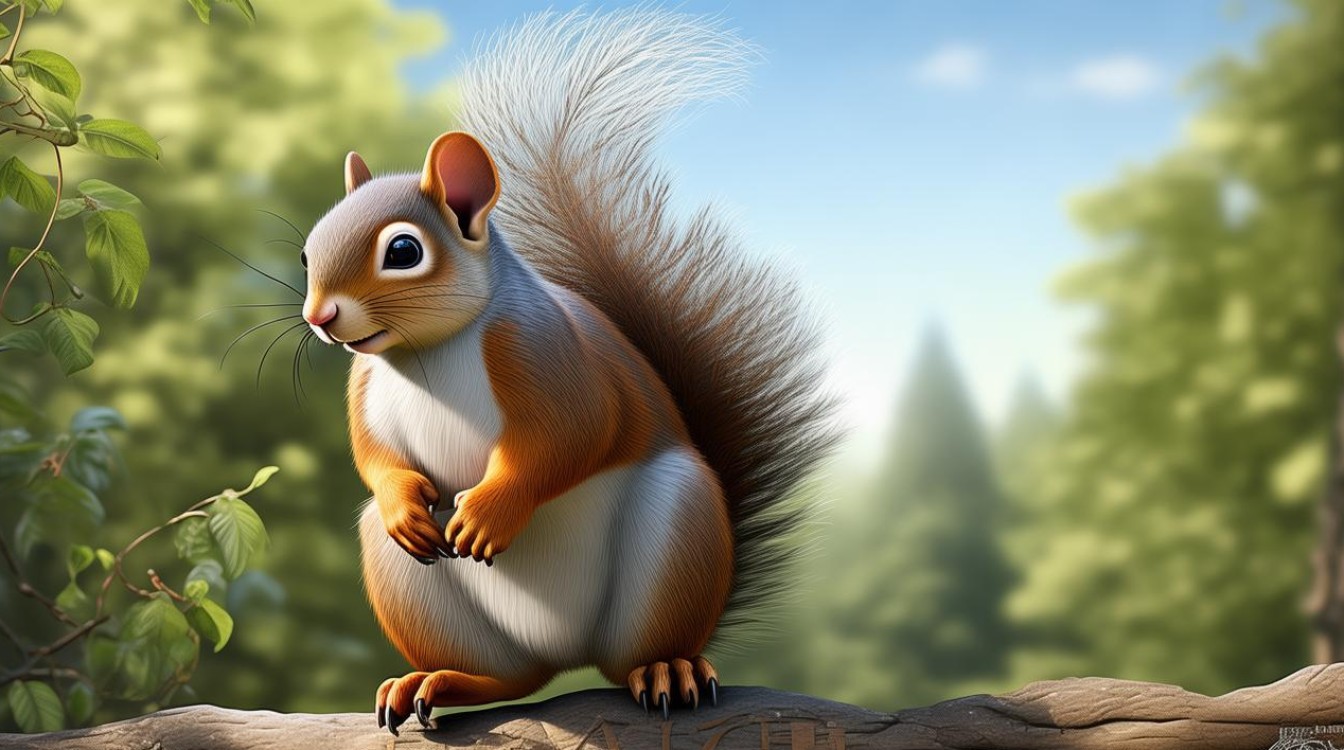The word "squirrel" in English refers to the small, agile rodents known for their bushy tails and habit of storing nuts. Native to almost every continent except Antarctica and Australia, squirrels are a common sight in forests, parks, and even urban areas. The term is pronounced /ˈskwɜːrəl/ in British English and /ˈskwɝːl/ in American English.

Etymology and Origins
The English word "squirrel" traces back to the Old French esquirel, derived from the Latin sciurus, which itself comes from the Greek skiouros (σκίουρος). Breaking it down:
- Skia (σκιά) means "shadow."
- Oura (οὐρά) means "tail."
Thus, the original meaning was "shadow-tailed," likely referring to how squirrels use their tails to shade themselves.
Different Types of Squirrels
Squirrels belong to the family Sciuridae, which includes:

- Tree squirrels – The most familiar type, such as the Eastern gray squirrel (Sciurus carolinensis).
- Ground squirrels – Including chipmunks and prairie dogs.
- Flying squirrels – Nocturnal gliders like the Northern flying squirrel (Glaucomys sabrinus).
Each variety has distinct behaviors, but all share the name "squirrel" in English.
Common Phrases and Idioms
The word appears in several English expressions:
- "Squirrel away" – To hoard or stash something, much like squirrels bury nuts.
- "Squirrelly behavior" – Describing someone who is restless or erratic.
Pronunciation Tips
Non-native speakers sometimes struggle with the word due to its unique sound sequence. Practice breaking it into syllables: skwi-rel. The trick is to emphasize the first syllable and soften the second.

Cultural Significance
Squirrels appear in folklore, literature, and media. In Native American traditions, they symbolize preparation and resourcefulness. Modern pop culture features them in animated films like Ice Age (Scrat) and Over the Hedge (Hammy).
Scientific and Ecological Role
Squirrels play a vital role in seed dispersal, aiding forest regeneration. Their foraging habits help shape ecosystems, making them ecologically significant beyond their cute appearance.
Common Misconceptions
- All squirrels climb trees – Ground squirrels live in burrows.
- They only eat nuts – Their diet includes fungi, insects, and even small vertebrates.
- They hibernate – Only some species do; most remain active year-round.
Why the Word Matters
Understanding "squirrel" isn’t just about vocabulary—it’s about connecting language to nature. Whether you’re a student, traveler, or wildlife enthusiast, knowing this term enhances communication and appreciation for these lively creatures.

The next time you spot a squirrel darting up a tree, you’ll not only recognize the animal but also the rich linguistic and ecological layers behind its name.





